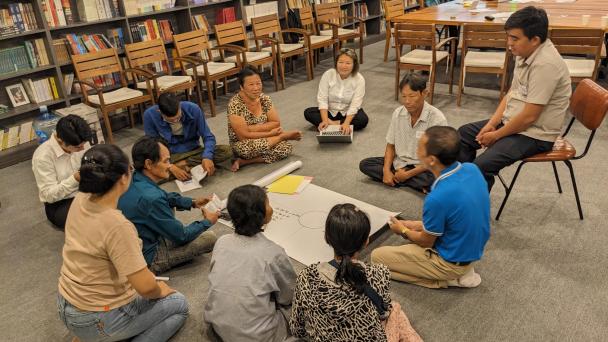Climate Justice and Policy Coherence for Sustainable Development: Lessons from the Asia-Pacific Region


This research project, funded by the Wellcome Trust, is investigating the vulnerabilities and multiple health exposures of outdoor workers in urban areas in Vietnam. Given the country's significant informal sector, the project will co-construct a new evidence base through multi-stakeholder collaboration, addressing fundamental knowledge gaps about the vulnerabilities of outdoor urban workers.
This project is led by NatCen International in collaboration with the University of Bristol, and partners based in Vietnam, Social Life Research Institute and Institute for Development and Community Health "Light".
The Sana’a Center for Strategic Studies (SCSS) commissioned NatCen International to deliver comprehensive training modules in Arabic, focusing on qualitative research methods and introductory economics, tailored to the Yemeni context. The objective was to empower Yemeni researchers and policymakers with robust analytical tools necessary for conducting rigorous research, producing insightful policy analyses, and drafting impactful white papers. These modules were designed to enhance participants' capacity to navigate and address the complexities of Yemen’s socio-economic landscape, especially in the current context.
Led by experts in the fields of qualitative research and economics, each course was structured to combine theoretical knowledge with practical application. Interactive sessions facilitated dynamic learning, while workshops provided hands-on experience. Tutor feedback ensured that participants could refine their skills and understanding continuously. Group tasks, including the analysis and presentation of papers centred on Yemeni led research, encouraged collaborative learning and critical thinking.
> Find out more about the training courses we deliver on the NatCen International Academy page.
This case study aims to shed light on the current vulnerability of populations in Mekong Delta region in the context of a specific climate change impact. It will also point out gaps in current national policy responses to this particular impact to ensure the protection of populations in the region.
In collaboration with Saferworld, we developed an analysis of the intersection between poverty, politics and conflict in Yemen to inform the Swedish International Development Agency’s (SIDA) development cooperation strategy in the country under the Regional MENA Strategy 2021 – 2025.

We examine contextual opportunities and challenges for everyone to attain the highest level of health

We examine Britain’s role in a changing world including in policy areas such as armed conflict, migration, health crises, and climate change.

We explore how violence is experienced and perpetrated, and how it can be prevented in a sustainable and effective way.

Empowering societies for global change



 News
News
 News
News
Receive a regular update, sent directly to your inbox, with a summary of our current events, research, blogs and comment.
Subscribe